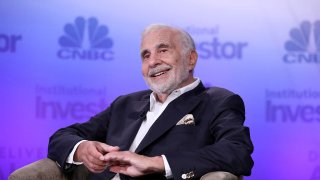
Company: Bausch Health Companies Inc. (BHC)
Bausch Health Companies Inc, formerly Valeant Pharmaceuticals International Inc, is a Canada-based company that develops, manufactures and markets a range of branded and generic pharmaceuticals, medical devices and over-the-counter products. It primarily develops products in the therapeutic areas of eye health, gastroenterology and dermatology. Its dermatology products treat a range of conditions, including actinic keratosis, acne, atopic dermatitis, psoriasis and other dermatoses. It also offers a selection of aesthetic medical devices that address a variety of conditions, including facial wrinkles, acne, pigmentation conditions and laser hair removal, among others. The gastrointestinal (GI) segment offers products that treat GI and hepatologic conditions, including hepatic encephalopathy, irritable bowel syndrome with diarrhea and ulcerative colitis, among others. Its eye health products are marketed in the following categories: Contact Lens, Pharmaceutical Products and Surgical.
Stock Market Value: $11.3 billion ($31.93 per share)

Get Southern California news, weather forecasts and entertainment stories to your inbox. Sign up for NBC LA newsletters.
Activist: Carl Icahn
Percentage Ownership: 7.83%
Average Cost: $25.57
Money Report
Activist Commentary: Carl Icahn is the grandfather of shareholder activism and a true pioneer of the strategy. While he is not slowing down at all, he recently reached an agreement with his son, Brett Icahn, to rejoin the firm as the eventual successor. Brett hired three portfolio managers to help him look for the firm's next activist target and this is Icahn's first 13D filing since Brett rejoined the firm. Brett has said that he plans to employ his father's favored approach of pushing companies to make changes designed to boost their stock prices, though he hasn't ruled out friendly bets too. This is not a departure from the strategy Carl has succeeded with for many years. He can be friendly (i.e., Apple, Netflix) or he can be confrontational (i.e., Forest Labs, Biogen), often it depends on the response of management. Brett is an impressive activist investor in his own right, not because he is Carl's son, but because he has demonstrated a long track record of extremely successful activist investing. Much has been written about the Sargon Portfolio he co-headed at Icahn, which at one time totaled around $7 billion and included extremely profitable investments in companies such as Netflix Inc. and Apple Inc. The Saragon Portfolio significantly outperformed the market with an annualized return of 27%. However, prior to that Brett started in 2002 with Icahn as an analyst and was later responsible for campaigns like Hain Celestial (280.3% return versus 46.7% for the S&P500), Take Two Interactive (81.5% versus 64.5%) and Mentor Graphics (106.4% versus 79.4%).
What's happening:
Icahn intends to engage in discussions with the company's management and board regarding ways to enhance shareholder value, including the company's ongoing strategic review.
Behind the scenes:
In Icahn's 13D at Bausch, he states that he to intends to engage in discussions with the Company regarding ways to enhance shareholder value, including the company's ongoing strategic review and possible board representation. We believe he is really concerned about strategic opportunities. First, the language about board representation is boilerplate language for Icahn 13D filings but the language about strategic review is not. Second, the board already has two 13D shareholder directors – Robert Hale of Value Act and John Paulson of Paulson & Co. More likely Icahn is interested in creating value through strategic transactions at Bausch, which was built on many acquisitions over the years when it operated as Valeant.
Since Icahn's filing, 13D shareholder Glenview Capital released a letter to the company welcoming Icahn as an active shareholder and releasing its own plan for the company - sell off stakes in or portions of its high-value, optimally-profiled assets at fair prices to raise equity and de-lever offering ownership in iconic assets to the many pools of capital who are chasing a scarce number of fairly-valued, quality growth alternatives. As Icahn alludes to in his filing, the company has already announced that it intends to separate its eye-health business into an independent publicly traded entity from the remainder of Bausch Health Companies Inc. in late 2021 and Glenview supports selling 40% of this business to the public. Management stated that it is exploring various capitalization structures and the form of the separation transaction in order to properly capitalize both entities post-separation. As Glenview suggests, there are also opportunities to create value by selling off other business lines.
This is an area where Icahn could certainly add value. The eye care business accounted for $3.7 billion of the company's $8.6 billion of revenue in 2019. Icahn will certainly want to make sure that shareholders get full value in the separation, which could mean a sale of the business instead of a separation. Who knows, maybe optimal value would be derived by selling the eye care business and/or other Bausch businesses to a SPAC? With the number of SPACs being launched these days, it is just a matter of time before they have to look at subsidiary businesses of public companies.
Ken Squire is the founder and president of 13D Monitor, an institutional research service on shareholder activism, and the founder and portfolio manager of the 13D Activist Fund, a mutual fund that invests in a portfolio of activist 13D investments.






